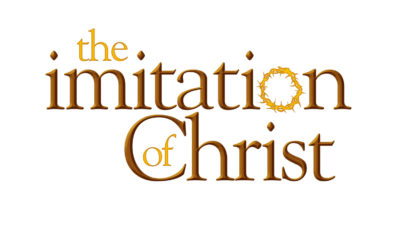The Imitation of Christ appears as a recurring theme in several of Kierkegaard’s later works. Absorbing the essence of Thomas à Kempis’ writing into the sponge of Kierkegaard’s fertile mind, and then squeezing that sponge onto the printed page, makes for some truly challenging—and fascinating—reading. His posthumously published “Judge for Yourself,” a blistering critique of the superficial Christendom of his time—and equally true in our own—is perhaps his finest expression. What follows is an excerpt from the work.
***
Imitation, “the following of Christ,” this precisely is the point where the human race winces, here it is principally that the difficulty lies, here is where the question really is decided whether one will accept Christianity or not. If pressure is brought to bear at this point, and a strong pressure—in that same degree there are few Christians. If at this point a convenient accommodation is made (so that Christianity becomes, intellectually, a doctrine), many enter into Christianity. If it is done away with entirely (so that Christianity becomes, existentially, as easy as mythology and poetry, while imitation is exaggeration, a ludicrous exaggeration), then Christianity widens out to such a degree that Christendom and the world almost correspond, or all become Christians, then Christianity has triumphed completely—in other words, it is done away with.
Ah, if only attention had been given to this in due time, the situation in Christendom would be very different from what it now is. But since human assertiveness became more and more menacing in refusing to hear anything of this nonsense about imitation; since mercenaries and thralls or at least very weak believers took upon themselves to be preachers of the Word—then the history of Christendom, from generation to generation, became a steady reduction in the price of what it is to be a Christian. Until at last it became such an absurdly low price that soon the opposite effect was produced, that men hardly wanted to have anything to do with Christianity, because as a result of that untrue mildness it had become so mawkish that it disgusted people.
To be a Christian—well, if only one does not literally steal, does not literally make thieving one’s business; for to be a thief in one’s business can well be combined with being a serious Christian who takes the communion once a year, and a couple of times a year, or definitely on New Year’s Day, goes to church. To be a Christian—well, if in committing fornication one does not exaggerate, or deserting the golden mean go to extremes; for cautiously, with decorum, i.e., secretly, with taste and refinement, that still can well enough be combined with being a serious Christian who at least hears one sermon for every fourteen comedies and romances he reads. And that there might be anything to prevent a person who is altogether conformed to this world and by every shrewd device seeks to assure himself of the greatest possible earthly advantages and pleasures, etc.—that there might be anything to prevent him from thinking that this could perfectly well be combined with being a serious Christian—that would be a ludicrous exaggeration, an impertinence if anyone who would enjoin such a thing upon us, and boundless foolishness on the part of him who risked this venture, since there was not a single person who would reflect . . . upon what is written in the New Testament or that it is written there.
This is a cheap edition of what it is to be a Christian, yet it is the actual status; for that preachers declaim on Sundays during a quiet hour about the higher virtues, etc., does not alter the actual status on Mondays, since people explain such preaching by the fact that it is the parson’s official job and his living, and since the lives of many parsons are not different from that actual status—but properly it is the existence which preaches, the preaching with mouth and arms is of no avail.
However, there also were those who held Christianity at a higher price, but never higher than about up to that quiet piety, which under the lenient regime of grace thinks often about God, expects every good thing from His fatherly hand, seeks comfort from Him in life’s need.
“To suffer for the doctrine,” following Christ—that is entirely abolished, consigned long, long ago to oblivion. Inasmuch as in the sermon one cannot very well entirely avoid saying something about the following of Christ (although some have known how to manage it in such a way it can be done), one does it by suppressing the really decisive thing and substituting for it something different: that one ought to endure the adversities of life with patience, etc.
But the following of Christ is abolished. Established Christendom, if only for laughter it could listen, would doubtless fall into the profoundest amazement if it were to hear that this is the doctrine of the New Testament (and in accordance with the New Testament, of all true Christians), that it is the part of the true Christian to suffer for the doctrine. To suffer for the doctrine—in such a measure only to serve one master, in such a way to follow the Pattern that one suffers for being a Christian! To suffer for the doctrine—“No, no,” Christendom would doubtless say, “I believe now that the man has gone clean out of his mind; to require that one must suffer for the doctrine—to become addicted to Christ in such a measure is then far worse than becoming addicted to gambling, drink, or adultery. It is all well enough, as the parsons preach, that Christianity is a gentle consolation, a sort of assurance for eternity, it’s all right, that is a thing a man may be willing to give his money for—and perhaps it is paid for pretty dearly with the high tithes now exacted, so that in this respect we might be said to suffer for the doctrine. But to be obliged to pay to have this preached, that one must suffer for the doctrine! The man is stark mad.” And yet the blame is not his; the “stark madness” really is that in preaching Christianity they have left out and suppressed what does not please the worldly and earthly mind, and so have prompted all this worldliness to imagine that it is Christianity.
Oh, if they had held tenaciously to this point, to the following of Christ! If, instructed by the errors of earlier ages, they had truly held to this point! This did not come to pass. So it must come to pass. “Imitation,” which answers to Christ as the Pattern, must (if Christendom is to make sense) be again introduced, but (as I have hinted) in such a way as to show that we have learnt something from the error of earlier ages.
Without introducing “imitation” it is impossible to get the better of doubters. Hence it is that the situation in Christendom is what it is, that doubt is posited instead of faith. And then they want to arrest doubt … by reasons; and in this course they are not yet arrested, they have not yet learnt that it is wasted effort, indeed that it is to nourish doubt to give it a reason for persisting; they have not yet become awake to the fact that “imitation” is the only force which, like the police force, is able to scatter the disorderly mob of doubt, and to give it a will and a compulsion, if one would not be a ‘follower’, at least to go home and keep one’s mouth shut.
“Imitation,” which answers to “Christ as the Pattern,” must be brought to the fore, applied, recalled to remembrance. Let us take up the matter fundamentally, yet with all brevity. The Saviour of the world, our Lord Jesus Christ, did not come to the world to bring a doctrine; He never lectured. Since He did not bring a doctrine, neither did He seek to prevail upon anyone by reasons to accept the doctrine, nor seek with proofs to substantiate it. His teaching in fact was His life, His presence among men.


